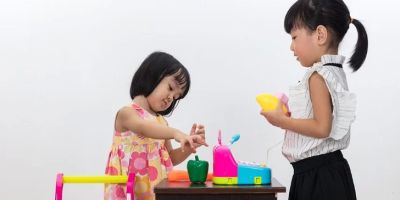- Understanding Autism and the Importance of Toys for Toddlers
- Why Some Toys Are Better for Toddlers with Autism
- Best Toys for Toddlers with Autism
- How to Choose the Right Toys for Toddlers with Autism
- Real-Life Examples of Toys Helping Toddlers with Autism
- Why Choose Knight Toys for Toddlers with Autism
Understanding Autism and the Importance of Toys for Toddlers
Autism Spectrum Disorder (ASD) is a developmental condition that affects how a person perceives and interacts with the world. While every child with autism is unique, they often face challenges with communication, sensory processing, and social interaction. For toddlers with autism, appropriate toys can play a crucial role in their development, providing opportunities for sensory exploration, improving motor skills, and fostering social skills. Understanding how autism affects a toddler’s development helps parents and caregivers select toys that can assist in stimulating growth and learning.
Toys for toddlers with autism are designed to engage children in ways that are both educational and entertaining, while being mindful of their sensory needs. For example, some children with autism may be sensitive to bright lights or loud noises, while others might seek out sensory input, such as tactile stimulation. Therefore, the right toys can not only provide enjoyment but also help children develop key skills like problem-solving, hand-eye coordination, and emotional regulation. Selecting the right toys is essential to help them navigate their world more effectively and comfortably.
Why Some Toys Are Better for Toddlers with Autism
When choosing toys for toddlers with autism, it’s important to consider the unique sensory processing challenges they may face. Certain toys can be especially beneficial because they cater to the specific needs of children with autism. These toys tend to be simple, non-distracting, and supportive of the child's sensory preferences. For instance, some children may enjoy toys that provide calming sensory input, such as textured fabrics, soft lights, or gentle sounds, while others may benefit from toys that engage their fine and gross motor skills.
Additionally, structured toys that involve routines, sequences, or repetitive motions can help children with autism by providing a sense of predictability. Toys that encourage cause-and-effect play, such as buttons that light up or toys that make sounds when pressed, can promote cognitive development. Furthermore, toys that involve social interaction or mimic real-life scenarios can help improve social skills and communication, which are often areas of difficulty for toddlers with autism.
Best Toys for Toddlers with Autism
Here are some of the best types of toys for toddlers with autism that can help support their developmental needs:
1. Sensory Toys
Sensory toys are designed to help children with autism explore and respond to different sensory inputs. These toys often include textures, lights, and sounds that provide stimulation in a controlled way. Items like textured balls, fidget spinners, or sensory bottles are perfect examples. They can help children manage sensory overload while providing a soothing experience.
2. Interactive Playsets
Interactive playsets, such as stacking blocks, shape sorters, or pop-up toys, are ideal for toddlers with autism because they encourage problem-solving and motor skills development. These toys engage children in focused play, helping them improve their hand-eye coordination and fine motor skills. Playsets that involve simple cause-and-effect interactions can also boost cognitive skills, as children learn how their actions affect the world around them.
3. Communication and Social Skills Toys
Toys that promote communication and social interaction can be especially helpful for toddlers with autism who are working on these skills. For example, toys that encourage turn-taking, like simple board games or toys that require verbal responses, can help children develop social skills. Additionally, dolls or action figures that encourage pretend play can allow children to engage in social scenarios and explore different social roles in a safe, controlled environment.
4. Visual Stimulation Toys
Visual stimulation toys, such as light-up toys, color-changing objects, or toys with moving parts, can capture the attention of toddlers with autism and provide them with visual input. These toys are especially effective for children who are attracted to bright lights and colors, and they can be calming as well as engaging. For example, a toy that projects calming lights or shapes can help children focus and reduce anxiety.
How to Choose the Right Toys for Toddlers with Autism
Choosing the right toys for toddlers with autism can be a challenging but rewarding process. Here are some key factors to consider when selecting toys for your child:
1. Sensory Preferences
Understand your child's sensory preferences. Does your child prefer soft textures or bright colors? Are they sensitive to sounds or lights? Some children may enjoy toys with specific textures, while others might be overwhelmed by certain sensory inputs. Choose toys that align with your child’s sensory preferences to avoid overstimulation and promote comfort.
2. Age and Developmental Stage
Consider the age and developmental stage of your child. Choose toys that are appropriate for their developmental level and encourage learning. For instance, a toddler who is just learning to walk may benefit from push toys, while an older toddler who is developing fine motor skills may enjoy stacking toys or puzzles. Be sure to choose age-appropriate toys that will engage and challenge your child without overwhelming them.
3. Promote Interaction
Toys that encourage interaction with others can help toddlers with autism improve their social skills. Consider toys that require collaboration or simple communication, such as games that involve taking turns or engaging in pretend play. These types of toys help children learn the basics of social interaction and communication, which can be especially beneficial for children with autism.
4. Safety and Durability
Safety should always be a top priority when selecting toys. Look for non-toxic materials, rounded edges, and sturdy construction to ensure the toy is safe for your child. Given that toddlers can be rough on toys, selecting durable, long-lasting options will provide more value and reduce the frequency of replacements.
Real-Life Examples of Toys Helping Toddlers with Autism
Many parents and caregivers of toddlers with autism have found certain toys to be incredibly helpful in their child's development. For instance, Emily, the mother of a 3-year-old boy with autism, shares her experience with sensory toys: “My son loves his sensory toy set. The textured balls and light-up toys help him focus and calm down when he’s feeling overwhelmed.”
Similarly, a father of a 4-year-old girl with autism found that interactive toys helped improve his daughter’s social skills: “We started using a toy that encourages turn-taking, and it’s amazing how much progress she’s made in understanding social cues. It’s now one of her favorite toys, and it’s helping her interact more with us.”
Why Choose Knight Toys for Toddlers with Autism
When selecting toys for toddlers with autism, it’s important to choose a trusted source. Knight Toys offers a wide range of sensory-friendly, interactive, and developmentally appropriate toys that can help children with autism thrive. Whether you're looking for calming sensory toys or educational games that promote social interaction, Knight Toys provides high-quality options that cater to the needs of toddlers with autism. With a focus on safety and educational value, Knight Toys is the perfect choice for parents looking to support their child's development in a meaningful way.





